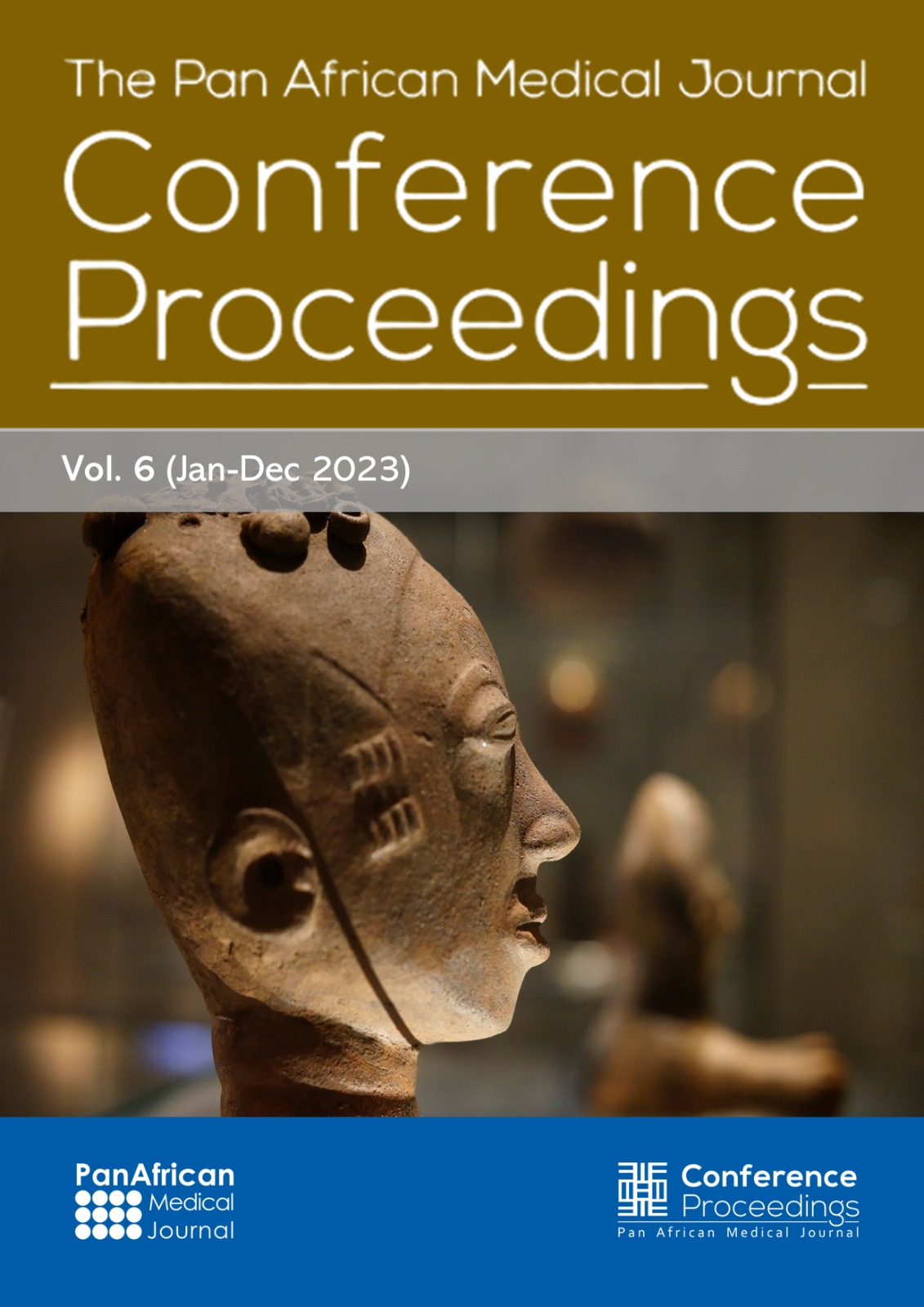Conference abstract
Heat stress
Pan African Medical Journal - Conference Proceedings. 2017:4(15).15
Nov 2017.
doi: 10.11604/pamj-cp.2017.4.15.446
Archived on: 15 Nov 2017
Contact the corresponding author
Keywords: Heat Stress, military, Saudi Arabia
Abstract
Heat stress
Ali Ahmed Alkinani1,&
1Medical Services Directorate, Ministry of Defense, Kingdom of Saudi Arabia
&Corresponding author
Ali Ahmed Alkinani, Medical Services Directorate, Ministry of Defense, Kingdom of Saudi Arabia
Introduction: many jobs require working in hot environments, both outdoors and indoors. Working in the heat and doing heavy physical work can affect the body's cooling system. If the body is unable to cool itself, a worker can experience heat stress. If the heat stress is not recognized and treated in the early stages, more serious and even fatal conditions may quickly develop. Worker exposed to hot environments must be trained to prevent heat stress and to recognize the early symptoms of heat stress in themselves and coworkers.
Methods: systemic review of the world literature concerning this disease.
Results: heat stress can result in a range of problems from skin rashes and light headedness to convulsions and unconsciousness. Early symptoms of heat stress such as excessive fatigue, lethargy, irritability, lack of co-ordination, and altered judgment and can result in serious accidents. Unless treated promptly, these symptoms can rapidly develop into serious conditions, including convulsions and unconsciousness. The Military may work in hot environments, whether wet or dry, all of which may be dangerous if the military did not learn how to prevent them Human bodies naturally maintain temperatures between 36°C and 38°C. When the body temperature rises above this range, the body will react to get rid of excess heat. However, if the body continue to gain heat faster than it can get rid of it, the body temperature increases and the person experiences heat stress. Health problems that result from heat stress are known as heat disorder. Heat discover occur most often when the body consequently loses too much fluid and salt as sweat. Many variables contribute to heat stress. To prevent heat stress, workers and troops must able to identify all sources of heat and of understand how the body removes excess heat.
Conclusion: this presentation provides a basic overview of risk factors that increase the chances of suffering from heat stress, how to recognize and treat heat stress, and how to prevent heat stress.








